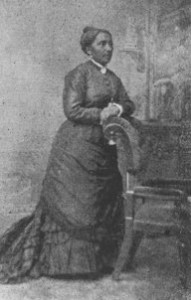7 African American Women Who Broke The Glass Ceiling In Education
February 25, 2016
IN HONOR OF BLACK HISTORY MONTH, WE ARE CELEBRATING 7 EXTRAORDINARY FEMALE BLACK EDUCATORS
“Education is the key to unlock the golden door of freedom,” wrote George Washington Carver in a letter to Booker T. Washington in 1896, accepting an invitation to teach agriculture at the Tuskegee Institute in Alabama–what would become a major center for African-American education. In a time and place where racial prejudice and discrimination were the norm, both men, African American, stand out as influential black leaders who believed that education was crucial to empowering black leaders and effecting social change.
And while their work paved the way for many important black leaders, indeed “unlocking the golden door to freedom” for many, there have also been scores of under-remembered and under-recognized African American women who have been equally influential, particularly in the field of education, despite the cards stacked against them. As black women, they faced double the prejudice of their famous black male counterparts. These women have (and some continue) to break glass ceilings in education, for women and for African Americans across the nation.
In honor of black history month, we’d like to celebrate these 7 black women who, despite the odds, have not only achieved their own personal success, but have carved out important space for black women to become leaders in education.
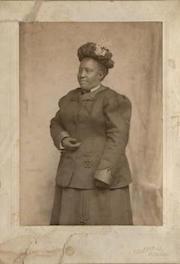 1. Sarah Mapps Douglass
1. Sarah Mapps Douglass
Ahead of her time in almost every respect, Sarah Mapps was a well-educated professional whose life and work spanned nearly the entire 19th century. Remembered as an activist, educator, and abolitionist, she believed cultivating the intellect through education was the most powerful means of fighting discrimination against African Americans and women. In 1833, Mapps began teaching, soon establishing her own school which would eventually merge with Cheyney State University, the first institution of higher learning for African Americans. In addition to being an educator, Douglas was a dedicated activist. She was a founder and long-time member of the Philadelphia Anti-Slavery Society and helped start the Female Literary Society, which sought to promote literacy amongst African American women and create solidarity between free and enslaved African Americans. In 1853, at nearly 60 years old, Douglas became the first African American female student at the Female Medical College of Pennsylvania. 2 years later, at the age of 61, she married for the first time, becoming Sarah Mapps Douglass.
2. Elizabeth Jennings Graham
The Rosa Parks of the 19th century, Elizabeth Jennings Graham was a free African American woman who lived in New York City for most of her life and made important contributions early on to African American education and to desegregation. She is most famous for refusing to de-board a segregated streetcar in New York City in 1854. She went on to sue the streetcar company and the court ruled in her favor, leading to the eventual full desegregation of New York City’s public transit system by 1865–nearly a century before the same would happen in Montgomery, Alabama. Like Sarah Mapps, Jennings believed cultivating the mind through education was the way forward in abolishing slavery and ending discrimination and segregation of African Americans. She lived out this belief by becoming a teacher, teaching at the African Free School and in New York City public schools, eventually establishing New York City’s first kindergarten for black children.
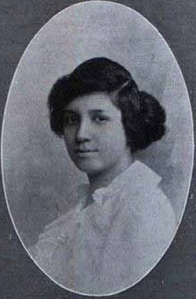 3. Dr. Martha Euphemia Lofton Haynes
3. Dr. Martha Euphemia Lofton Haynes
As the valedictorian of her high school, then Euphemia Lofton began making her mark on education early. She went on to accomplish several firsts in education, including becoming the first African American woman to earn a PhD in Mathematics in 1943. An enormously influential member of Washington D.C’s educational system, having taught in D.C Public Schools for 47 years, Haynes was also the first woman and first African American to chair the DC School Board–a first that neighboring Loudon County Virginia could not claim until January of this year. In addition to her work in D.C Public Schools, Haynes contributed to higher education, establishing and chairing the mathematics department at Miner’s Teachers College and teaching part time at Howard University after her retirement.
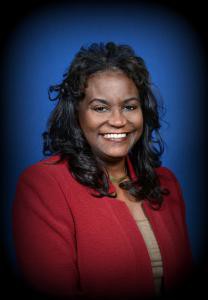 4. Michelle King
4. Michelle King
Fast forward in history to 2016, LA Unified School District’s newly-named first African American superintendent stands on the shoulders of the giants mentioned above, and thanks to her own dedication and tireless work as an educator, is a part of a long and rich history of African American women in education. Like Sarah Mapps of Philadelphia, Elizabeth Jennings of New York City, and Euphemia Lofton Haynes of Washington D.C, King is deeply rooted in her community–this time Los Angeles–and in her local school district, LA Unified. She began and ended her K-12 education in LA public schools, and began her career in the school district as a teacher’s aide, quickly moving up the ladder, from teacher, to principal, to district-level administrator to superintendent of the largest school district in the country as of January 2016. King is recognized amongst her peers for her ability to stand by her convictions while still making things happen in one of the country’s largest and often most polarized bureaucracies. According to one school board member and former colleague, she has “long stood out for intelligence and fairness.
 5. Dr. Sadie Tanner Mossell Alexander
5. Dr. Sadie Tanner Mossell Alexander
In reading Sadie Tanner Mossell’s biography, you will find there is a“first” before nearly every one of her extraordinary accomplishments. By becoming the first African American woman in the United States to earn a PhD in 1921 and the first African American woman to earn a law degree from the University of Pennsylvania Law School and then to practice law in Pennsylvania, Mossell made huge strides for women in higher education and in the professional world, making the goal of becoming an academic, a doctor, a lawyer or any kind of professional no longer a pipe dream, but a tangible reality for young black American women. Mossell used her education to advance the future for other African Americans, staying active in civil rights law throughout the entirety of her legal career.
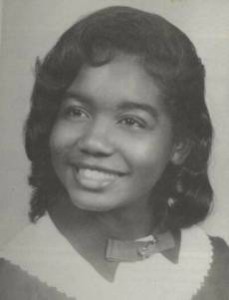 6. Melba Pattillo Beals
6. Melba Pattillo Beals
As the daughter of one of the first black female graduates of the University of Arkansas, Melba Pattillo Beals was perhaps destined for the role she would play in desegregating Arkansas schools. In 1958 at the age of 16, Beals along with 8 other young African American students who would later become known as the Little Rock Nine, became among the first African American students to attend Central High in Little Rock, Arkansas. At the high school, Beals, along with the other black students faced daily harassment, including having acid thrown into her eyes in a white student’s attempt to blind her. The school was shut down for refusing to integrate black students, and reopened in 1960 as an integrated high school, much in part to the brave stance Beals and the other Little Rock 9 made by showing up day after day for class in the 1958-59 school year. Beals would eventually move to California where she became a writer and a journalist. Continuing to make her mark upon education, Beals now teaches Journalism at Dominican University of California and in 2009 received a doctorate in education from the University of San Francisco.
7. Dr. Ruth J Simmons
It wasn’t until the 90s when a black woman was finally able to move into the highest echelons of education by becoming the president of a major college or university. Ruth Simmons, who became the president of Smith College in 1995 and the first African American president of an ivy league university when she accepted a position as president of Brown in 2001, acknowledges that while being a black woman may have made her job more challenging, she has learned to “lead ably from difference.” In addition to contending with the challenges of being an African American woman, Simmons came from humble beginnings, making her accomplishments even more extraordinary. The daughter of a Texas sharecropper and the youngest of 12, Simmons made her way out of Texas on a scholarship to Dillard University before earning a PhD from Harvard in 1973 and commencing upon her successful academic career. Simmons credits education not only with helping her build her impressive resume, but with bringing meaning to her life. “I came to understand the value of education, not just to enable me to make a good living, but to enable me to make a worthwhile life,” she once said. Among her many other honors, Simmons was appointed to the President’s Commission on White House Fellowships by President Barak Obama in June of 2009.
The progress we have made as a nation when it comes to advancing educational and professional opportunities for women and for African Americans is considerable, much thanks to the women mentioned above. But schools are more segregated today than they have been in 50 years, achievement gaps for African American students still loom large, and women only make 79 cents to every dollar a man makes in the workplace. As educators, policy makers, students, and citizens of this country, our work is cut out for us.
